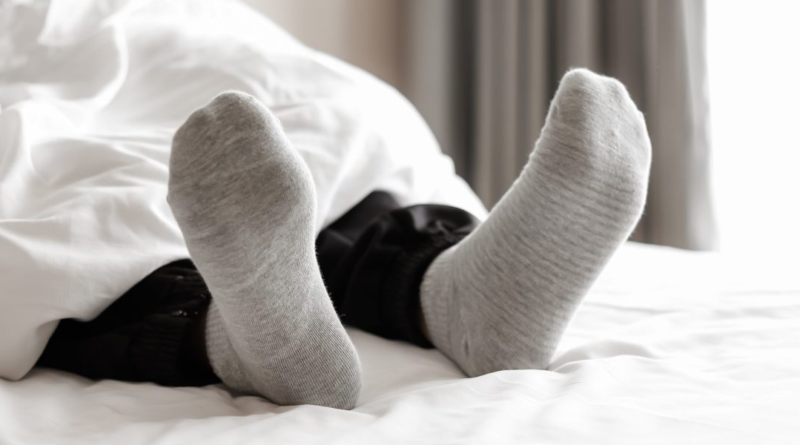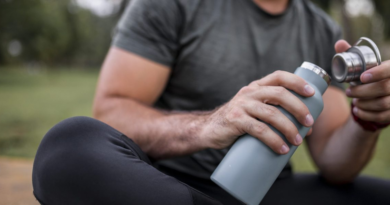Should you sleep in socks? Experts say this hack might be the secret to falling asleep faster and waking up less
If you’ve never been one to sleep in socks, you might want to give it a try.
Sleeping in socks helps to regulate your body temperature, which can lead to falling asleep faster, waking up less, and sleeping in later, according to research.
A study published in the Journal of Physiological Anthropology, found that men who wore socks fell asleep about seven minutes faster, slept 32 minutes longer, and woke up about seven times less often than those who didn’t wear socks.
Though it may seem counterintuitive, sleeping in socks helps keep your core temperature—the temperature inside your body, not of your skin—low, wrote Michael Breus, PhD, clinical psychologist and sleep medicine expert, in a blog post on Sleep Doctor. Warming your skin by wearing socks lowers body temperature by expanding blood vessels near the skin, which allows the heat to escape.
When your core body temperature is regulated, it makes for better sleep, Breus said.
Temperature plays a role in quality sleep
A drop in core body temperature signals to the body that it’s time to sleep and coincides with the release of melatonin—the sleep hormone. Experts suggest keeping your bedroom between 68 to 72 degrees Fahrenheit for ample sleep.
“Some sources recommend an even colder room; however, I typically recommend temperatures at least two to five degrees cooler than a comfortable temperature in the house during the day,” Dr. Nilong Vyas, founder and owner of Sleepless in NOLA, a sleep consulting service, and medical review expert at Sleep Foundation, previously told Fortune.
Wearing socks and sleeping in a cool room could be the perfect pairing for a high quality night of rest.
What kind of socks should you sleep in?
If you wear socks to sleep, ensure they aren’t so tight that they restrict blood flow, wrote Breus. It’s important the socks are comfortable so they don’t become a sleep distraction. Breus also suggested they be made of breathable fabrics like cotton, linen, or bamboo. And you should opt for a fresh, clean pair, not the ones you wore all day, behavioral sleep disorders specialist Michelle Drerup, PsyD, told the Cleveland Clinic.
If you feel a sensory overload sleeping in socks, research suggests that putting your feet in a warm water bath before bed can give a similar effect.
Will sleeping in socks cure my restless nights?
While sleeping in socks is worth a try to get better rest, it’s not a cure all. Socks aren’t a treatment for insomnia or other sleep conditions—you should talk to a medical professional for ongoing issues. And people with circulation issues should not sleep with socks without talking to their doctor first.
But, along with unplugging before bed, dimming the lights, and avoiding caffeine too late in the day, putting on a pair of socks before bed might be a way to step up your sleep routine, and wake up better rested.
For more on building healthy sleep habits:




